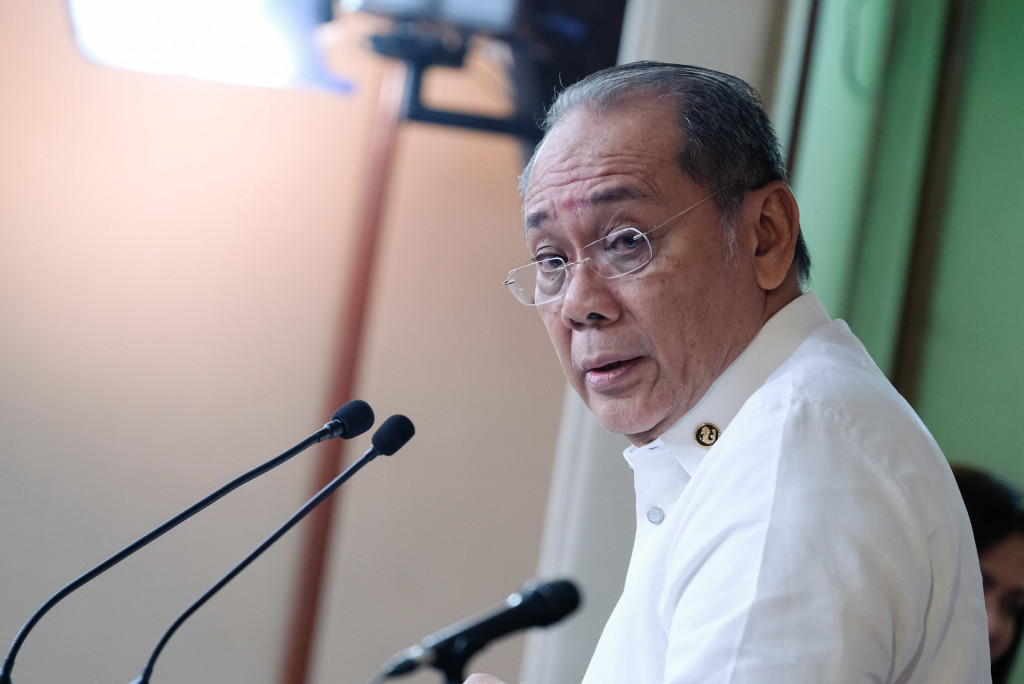Malacañang claims ‘big victory’ in UN Human Rights Council
A United Nations (UN) human rights body has concluded its review of the Philippines’ human rights situation, noting how Manila rejected calls by other countries to investigate extrajudicial killings under President Rodrigo Duterte’s war on drugs and made no commitment not to restore the death penalty.
The Philippines refused to accept and merely “noted” 154 of the 257 recommendations it received from other countries aimed at improving the overall human rights conditions in the country as part of a peer review process overseen by the 47-nation UN Human Rights Council.
Despite this, the UN Human Rights Council in Geneva, Switzerland, decided to “adopt the outcome of the Universal Periodic Review of the Philippines,” the Office of the UN High Commissioner for Human Rights (OHCHR) said in a statement on Saturday.
The Department of Foreign Affairs (DFA) claimed the country “scored a big victory” because the Council “overwhelmingly adopted Manila’s human rights report card.”
“The Philippines will remain resolute in its respect for and protection of human rights as it strives to improve the lives and welfare of each and every Filipino by protecting them from the scourges of drugs and criminality,” Cayetano said in a statement from New York, where he represented President Duterte at the 72nd session of the UN General Assembly.
In Manila, presidential spokesperson Ernesto Abella said the adoption of the Philippine report meant the recognition of the human rights record of the country and its “commitment to human rights under the leadership” of Mr. Duterte.
“This likewise reaffirms our respect for the dignity of the Filipino people and the protection of the Filipino family as we strive for a better life in a society free of illegal drugs and other crimes,” Abella added.
Only 103 of 257 accepted
The Philippine Permanent Representative to the UN office in Geneva, Evan Garcia, told the Council that Manila accepted only 103 recommendations and “took note” of the rest.
Manila rejected a recommendation to conduct a thorough investigation of drug-related extrajudicial killings and ignored calls to allow the UN special rapporteur on extrajudicial killings to visit the country without conditions.
It also rejected calls against the reimposition of the death penalty and the lowering of the minimum age of criminal liability.
Garcia said that deaths from the antinarcotics campaign “were not extrajudicial killings” and that the reimposition of the death penalty and the lowering of the age of criminal responsibility were being discussed in Congress.
Beyond gov’t control
A DFA statement said Garcia explained that the Philippines “could only note the other 154 recommendations because the country cannot guarantee or commit at this time to their fruition, given that the results of processes required to implement them are beyond the sole control of any of the branches of the government.”
The OHCHR said that while some speakers “praised the Philippines for the implementation of measures aimed at combating poverty and promoting the right to education and the rights of vulnerable groups,” others urged the Philippines to comply with “international standards” in combating drug use.
Some also expressed serious concerns about the absence of national legislation to protect lesbian, gay, bisexual, transgender, intersex and queer persons from discrimination and violence, it added.
Among the 14 countries that joined the discussions, the United States said it “remained concerned about ongoing reports of extrajudicial killings and called on the Philippines to ensure that investigations were conducted with respect for human rights and the rule of law.”
The United Kingdom said it “remained concerned about the high death toll associated with the campaign against illegal drugs and statements questioning the universality of human rights” and continuing threats against human rights defenders.
Commission on Human Rights (CHR) commissioner, Karen Gomez-Dumpit, reported to the Council that “a culture of impunity continues.”
She cited the “relentless war against illegal drugs that had resulted in thousands of deaths largely victimizing the poor;” extended martial law in Mindanao and internal refugees from the conflict in Marawi City; public threats against human rights defenders; and the decision by the House of Representatives to first reduce the CHR’s budget to P1,000 (or $20) and later to restore it but with a possible 15-percent cut.
The Asian Forum for Human Rights and Development said it “regrets” that the government did not accept majority of the recommendations. —With reports from Leila B. Salaverria and Jaymee T. Gamil















